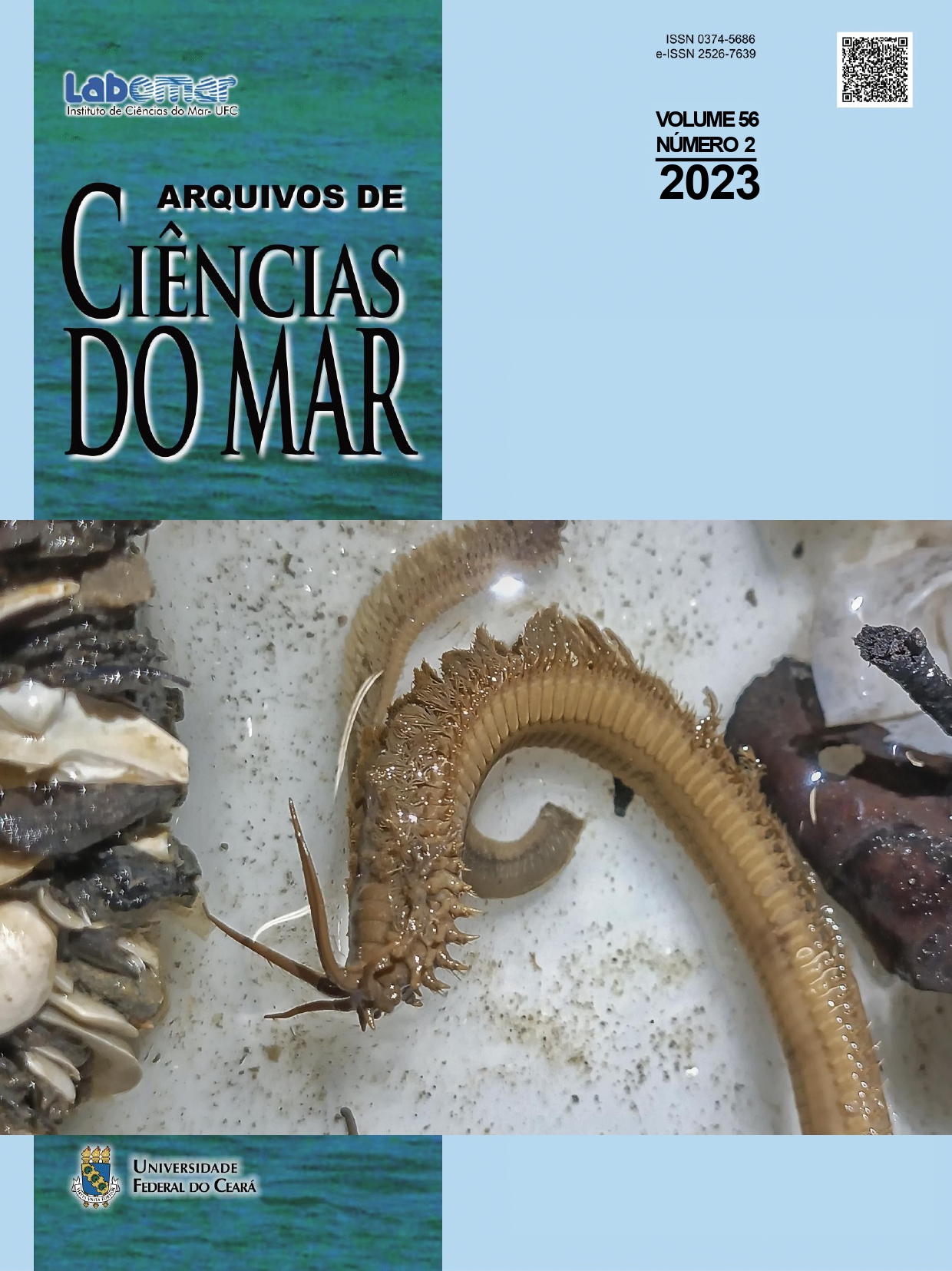ARTIFICIAL REEFS IN BRAZIL: PERSPECTIVES ON THE RESTORATION OF MARINE ECOSYSTEMS
Recifes artificiais no Brasil: perspectivas sobre a restauração de ecossistemas marinhos
DOI:
https://doi.org/10.32360/acmar.v56i2.83510Abstract
Artificial reefs (ARs) can restore degraded reef ecosystems when properly implemented. Despite growing interest, controversy exists due to the varied impacts associated with these structures. Each location worldwide has unique laws and regulations surrounding AR implementation. In this article, we critically assess and update the state-of-the-art on ARs in Brazil, exploring their history, key aspects, and scientific knowledge of their status and future perspectives. ARs have been used in Brazilian coast by government entities since the 1980s and by local communities aiming to boost fishing productivity since the 1990s. However, important aspects such as environmental monitoring, site assessment, material technologies, design, and socioeconomic considerations have not been extensively addressed. Consequently, inadequate planning has led to economic and socioenvironmental impacts like invasive species, pollution, and disruptions to community trophic structures, affecting the Brazilian coast economically, socially, and ecologically. While some progress has been made in legislation, further specifications and science-based tools are needed. Concerns have also emerged about the sinking of numerous vessels for tourism purposes. Thus, we present a decision-making tool for AR
utilization, emphasizing scientific planning, assessments, long-term strategies, interdisciplinary studies, and public policies for management and monitoring, including existing ARs.
Keywords: artificial reef, Brazil, coastal management, restoration, fishing.
Downloads
Additional Files
Published
Issue
Section
License
Copyright (c) 2023 Arquivos de Ciências do Mar

This work is licensed under a Creative Commons Attribution 4.0 International License.
1. Proposta de Política para Periódicos de Acesso Livre
Autores que publicam nesta revista concordam com os seguintes termos:
- Autores mantém os direitos autorais e concedem à revista o direito de primeira publicação, com o trabalho simultaneamente licenciado sob a Licença Creative Commons Attribution que permite o compartilhamento do trabalho com reconhecimento da autoria e publicação inicial nesta revista.
- Autores têm autorização para assumir contratos adicionais separadamente, para distribuição não-exclusiva da versão do trabalho publicada nesta revista (ex.: publicar em repositório institucional ou como capítulo de livro), com reconhecimento de autoria e publicação inicial nesta revista.
- Autores têm permissão e são estimulados a publicar e distribuir seu trabalho online (ex.: em repositórios institucionais ou na sua página pessoal) a qualquer ponto antes ou durante o processo editorial, já que isso pode gerar alterações produtivas, bem como aumentar o impacto e a citação do trabalho publicado (Veja O Efeito do Acesso Livre).

